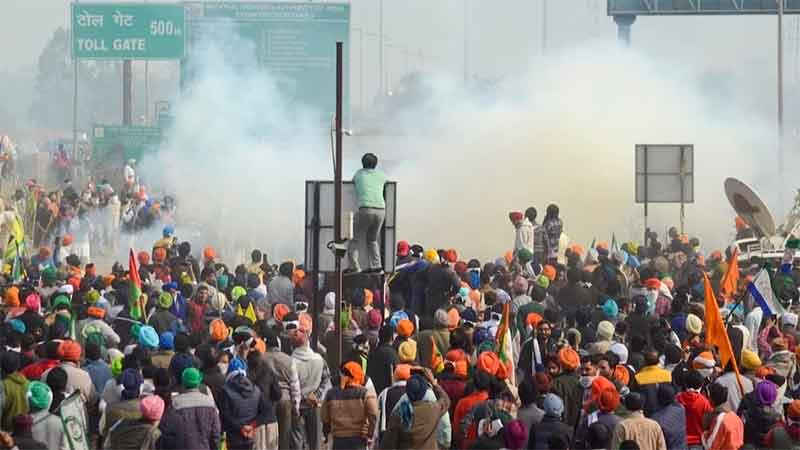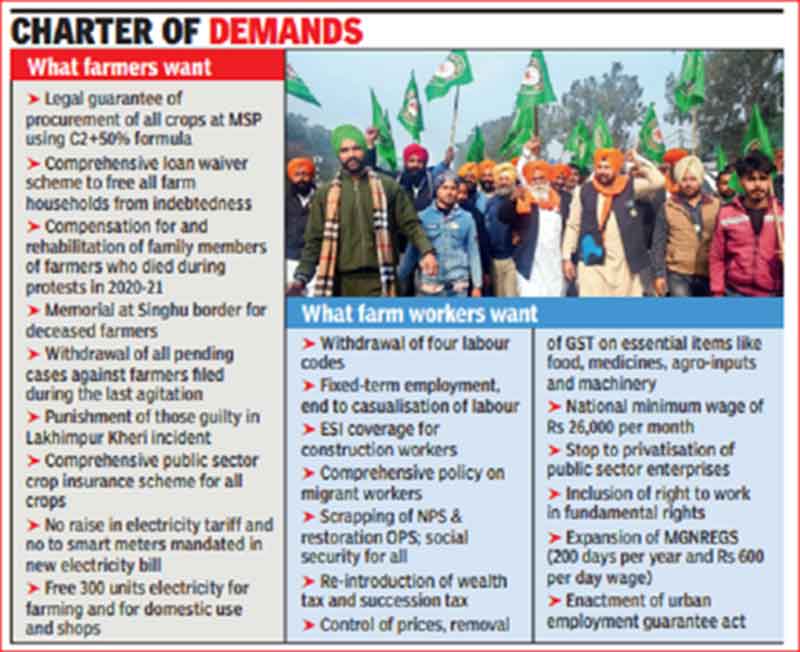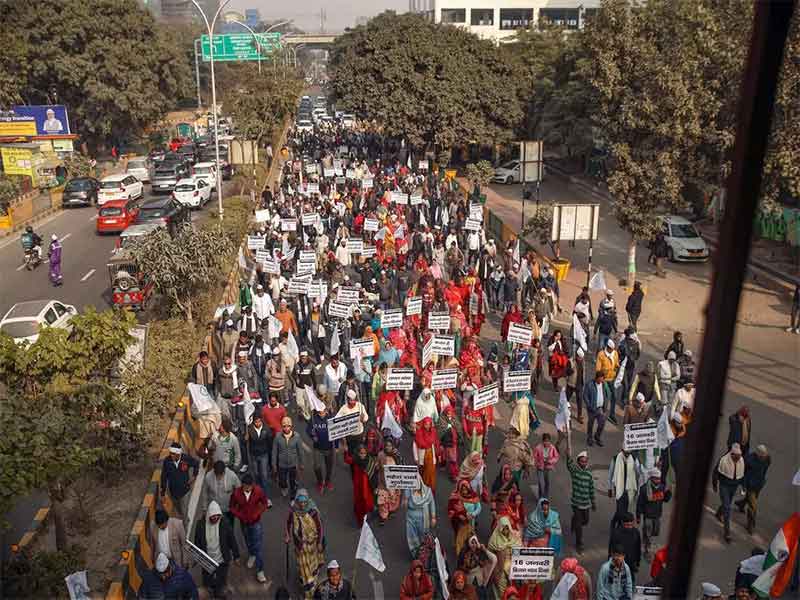Written by Rahul Singh Rana and Sandeep Pandey

The Farmers’ protests are into their fourth month now. These protests started with people from Punjab and Haryana breaking barricades and heading towards the Indian capital. As expected, these protesting farmers were met with force at several places. Undeterred by the challenging circumstances, the farmers were able to reach at the borders of Delhi. Though they wanted to go and protest at the Boat Club, the unwilling and uninterested government ordered the Delhi police to stop them at the Singhu border, the demarcation between Haryana and Delhi. Back then, the government must have thought that these are a handful of protesting farmers, who have been ‘misled’ by a few political parties. They were unaware of the strong resolve each of the participating farmer was carrying. Since then, the movement has only grown and multiplied.
Many instances were concocted, many fables were told to delegitimize the entire movement and label the participants as ‘Khalistanis’ and ‘anti-nationals.’ These labels only strengthened the movement. Punjabis and Haryanvis, who are well recognized for their participation in the Indian army and are sworn to protect the motherland could not take this insult and came out in more numbers to break the notions that labeled the protestors as the ones who are ‘misled’ or are from a particular political outfit. The protests were now no longer limited to Singhu border, but grew by the night to Tikri border and Ghazipur border. Farmers from U.P., Rajasthan, Uttrakhand, M.P. started to pour in numbers to register their protest.
The failure of this government in handling these protests can be seen from multiple lenses. The Narendra Modi government has abjectly failed in conveying its intentions behind these three farm laws. These laws were brought in through an ordinance when the parliament was not in session. Furthermore, the manner in which these laws were passed in the Rajya Sabha were sufficient to raise eyebrows. The stakeholders, who the Narendra Modi government claims will benefit from these three laws were not participants to the discussions when these laws were being framed. This government is in a habit of taking the wrong steps first and later concocting false narratives or completely ignoring the ill-effects of its steps in the past. An appropriate example is demonetization, which was brought into force purportedly to route out black money from the system, stop terrorism, and let government make money through windfall gains that will occur because of the illegal money that will not be reported to the banks. This step put strong speed breakers to an already dwindling economy and the effects, which received a further setback due to Coronavirus lockdown, can be felt even now.
In addition to this, the farmers in India have been devoid of the right to fair price to their produce since many decades now. An estimate says that when compared to 1970, a school teacher’s income has jumped by 280 to 320 times till 2015, however in the same duration, an average farmer’s income has only increased by 19 times. The delay in payments to sugarcane growers in many parts of India is still a deep-rooted problem. All of this has been accumulating since decades now. Modi government gave fuel to fire, which blew out of proportion. These three laws further strengthened farmers’ belief that already dwindling prices might be further plunge if left to the mercy of the open market.
The free market system has not resulted in the benefit of even a single farmer in any country throughout the world. Farming is a risky proposition. It is dependent on so many variables that the outcome cannot be predicted. In a country like India in which majority of the farmers with land holdings less than 2 hectares, leaving farmers at the whim of free market system would mean the prices would dwindle because of the excessive supply. There is a lack of cold storage spaces and the transportation costs are high. How can a farmer with limited resources and low risk of appetite experiment with the crops and take the produce to a faraway land to sell? Where is the infrastructure for this? It is obvious that only private corporations stand to benefit from these laws. Why can’t the government assure farmers of a minimum price over a range of crops? Wouldn’t this encourage farmers to experiment with the type of crops they can grow? If the Modi government is so sure about the fact that farmers will get better prices from private companies than what they have been getting in Mandis, why can’t they set MSP as the minimum legal price at which any crop can be brought? Government has hopelessly failed to explain any rationale, but is adamant on its inability to completely forfeit the laws and give MSP a legal status.
The growing protest highlights how the faith in Modi government is reducing, how a common person is understanding the divisive politics being played by this government, and how lack of proper dialogue and consultation will not be taken up silently by this nation. The protest has now decentralized and is taking the shape of ‘Kisaan Mahapanchayats’ across India. The leaders are now reaching out to every nook and corner, including in States which have gone to elections, to make farmers aware of the injustice that has prevailed through decades and the shortfalls of the three laws that can eventually prove to be the final nail in the coffin of agriculture in India. The Mahapanchayats are seeing people collecting in large numbers, thus registering their protest against the government and in solidarity with farmer unions and leaders. If these Mahapanchayats are able to impact the outcome of the ongoing Assembly elections in five States and Panchayat polls in UP, this might mark the beginning of the end of Modi government. The political mileage that this movement will gather will be an important tool for making the government concede to the demands of the farmer unions.
Rahul S. Rana is a Business Consultant and Sandeep Pandey is Vice President, Socialist Party (India)
e-mail ids: [email protected], [email protected]
GET COUNTERCURRENTS DAILY NEWSLETTER STRAIGHT TO YOUR INBOX














































